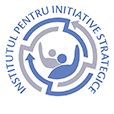Representatives of ethnic groups identified the problems and solutions in consolidating a strong society in a regional dialogue

The Institut für Europäische Politik based in Berlin (IEP), in partnership with the Institute for European Policies and Reforms (IPRE) and the Institute for Strategic Initiatives (IPIS) organized on November 29-30 a regional dialogue in the framework of the project “Promoting civil society and interethnic dialogue in the Republic of Moldova in the context of the EU association process (CIVID)”
The event was attended by 35 participants from different regions of the Republic of Moldova, as well as representatives of different ethnic groups. The event was open to young people, civil society experts, representatives of academia and business community, and civil servants from both central and local public authorities. The purpose of the event was to generate a discussion on strengthening the dialogue between ethnic groups and to identify practical solutions in various fields such as education, access to media, social rights and economic development.
Iulian Groza, Executive Director at IPRE, welcomed everyone in his opening remarks. Vlad Kulminski, Executive Director at IPIS, identified the main causes that led to the division of Moldovan society. Afterwards, Dominic Maugeais, IEP Senior Project Manager, spoke about the importance of interethnic dialogue in building a strong state.
Iulian Rusu, IPRE associate expert, talked about the right of minorities to participate in public life. Olga Goncearova, President of the People’s Assembly of Moldova, an NGO, presented proposals for improving interethnic relations in Moldova and Dr. Ewa Chylinski, Regional Director at the European Centre for Minority Issues, Council of Europe Expert, came up with a presentation on successful practices in improving inter-ethnic relations implemented in EU countries.
In the afternoon, the participants were divided into four groups. A facilitator was assigned to each of the four tables, who discussed for 20 minutes one of the following topics: education and mass media (moderated by Stela Babici, Dacia Center, Soroca); economic development (moderated by Mihail Şalvir, Centre for Regional Initiatives, Comrat); social rights (moderated by Vadim Pistrinciuc, IPIS); Association Agreement with the European Union (moderated by Vitalie Ponomariov, professor, Cahul). The dialogue was organized in a rotation format, allowing participants to discuss all four topics.
The purpose of this exercise was to identify the problems and measures that need to be implemented to strengthen interethnic relations. On the second day, participants had to choose a thematic group for working on concrete recommendations for improbing the interethnic relations. Below are some of the most important conclusions of the debates:
- Improving the Economic perspectives: the creation of voluntary Romanian language learning centres in the regions; creating centres for the development of regional entrepreneurial skills; developing tourism infrastructure; internships for young people in different regions of the country; the development of local and regional brands; funding of regional and national media as well as programs to promote intercultural dialogue, etc.
- Social perspectives: There is a lack of language learning mechanisms and poverty has led to the stereotyping of disadvantaged groups and various ethnic groups. Another problem is that ethnicities do not interact with each other, and this leads to increased levels of intolerance in society. It is also necessary to review of teaching methods of the Romanian language in the regions where a different language is predominantly spoken. The lack of teaching staff makes this problem even worse.
- The role of the EU-Moldova Association: In order to change the perception of the role of the EU-Moldova Association Agreement, the following interventions were proposed: better public information campaigns on the AA; increased measures to counteract the anti-EU propaganda and misinformation; more pressure from civil society on political parties to discourage populist and demagogic speeches and behaviours. The participants also agreed that the process of implementation of the EU-Moldova AA should be accelerated and the reform of the key sectors should become a priority for the Republic of Moldova.
The event was organized in the framework of the project “Promoting civil society and interethnic dialogue in the Republic of Moldova in the context of the EU association process (CIVID)”, with the support of the German Federal Foreign Office.
The project is implemented over the course of 12 months and it aims to improve social harmony, at regional level by encouraging public discourse and development of public policy proposals for integration of ethnic groups, as well as by supporting the implementation of the National Strategy of consolidating interethnic relations in the Republic of Moldova. The planned activities include public debate, workshops and TV debate in regions such as in Soroca and Taraclia. At the end of the project, experts will come up with policy recommendations for improving the legal framework for the integration of ethnic minorities.






 Română
Română Русский
Русский